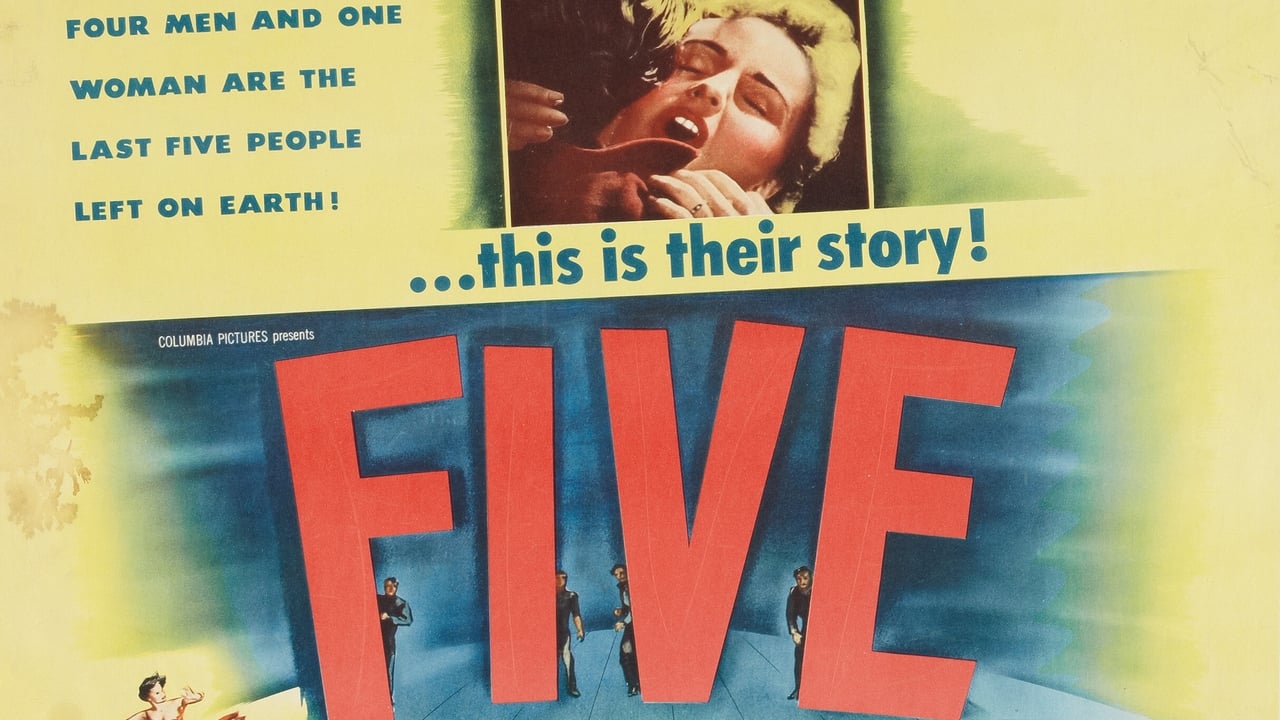

This movie starts off with a mushroom cloud and pictures of what were the greatest cities on earth. It then shows a young woman named "Roseanne Rogers" (Susan Douglas) in a disheveled condition walking down a lonely road in a state of shock and disbelief. She happens to see a cabin perched upon a mountain top and decides to take shelter there. Once inside she meets a man named "Michael Rogan" (William Phipps) who is as startled to see her as she is to see him. They think they are the last two people on earth. Until two more men show up and then a third. One of these men, "Eric" (James Anderson), believes that they have developed an immunity to the radiation and that they should drive to a city a few days away to look for more survivors. Michael believes that the city is dangerous due to high levels of radiation and unsafe. Now, rather than give the entire plot away I will just say that this is a surprisingly good movie for its time and it is rich in drama and tragedy. Definitely worth a watch for those who enjoy dystopian films of this nature.
... View MoreA quintet of people have to work together to stay alive and persevere in the wake of a nuclear holocaust that has killed off everyone else on the planet. Writer/director Arch Oboler relates the engrossing story at a steady pace, creates and sustains a properly bleak and sober tone throughout, puts a firm emphasis on interaction between the well-drawn characters over cheap melodrama or heavy-handed moralizing, and ably crafts a strong mood of despair and hopelessness. The fine acting by the capable cast holds the picture together: Susan Douglas as the pregnant, shell-shocked Roseanne Rogers, William Phipps as kindly intellectual Michael, Charles Lampkin as the genial, soft-spoken Charles, James Anderson as arrogant troublemaker Eric, and Earl Lee as polite old gentleman Mr. Barnstaple. Moreover, this movie gains considerable strength and impact from its low-key and unsentimental evenly balanced portrait of a dismal and distressful situation that brings out both the best and worst in humanity. The sharp black and white cinematography by Sid Lubow and Louis Clyde Stoumen provides a stark film noirish look (the shots of empty streets littered with skeletons are especially striking). Henry Russell's moody score does the brooding trick. Worth a watch for fans of end-of-the-world cinema.
... View MoreI had been in Los Angeles on August and went around Arch Oboler's house. It was amazing! I saw FIVE more than 50 years ago and the place is still there, maybe assuring to me that the world won't end, in spite of men's irresponsibility. The silence and the sounds of FIVE are in my memory since I was less than 10 years old. I have it and use to see it very often. When I came back home I noticed the visit to the location opened my eyes and my mind to details I haven't seen and heard before, as the stairs, the poem "Creation" and the music of Henry Russel. What a movie! I have no doubt: my very favorite sci-fi. There are only two other movies that fixed the same discomfort in me: THEM! and the first PLANET OF APES.
... View MoreArch Oboler's apocalyptic earth-shaker still packs a mighty punch. Searing at times, this thoughtful, loquacious drama follows the struggles of a poet, a pregnant woman, a banker, his bank teller and a mountain climber, as they search for safety, viands, and a new beginning. You have to hear the mountain climber's roundabout explanation on how he survived. It defies logic. They all surface at the director's home, a "Frank Lloyd Wright" creation embedded into the mountainside. Oboler, I believe, intentionally mixes disparate influences into the narrative: European Neo-Realism, art house/independent film fair and 50's-style television/anthology convictions. No fooling around. And it all comes together in the end. The death and destruction of society is handled with little commotion. The special effects are limited but effective. The director simply scatters some skeletons here and there and topples over some vehicles. The metropolis is lifeless and intact. It's coldly effective. I like how the older banker is given more dimensions than usual: his money worthless, he wishes only to see the ocean one last time. Wistful. He is an empathetic character. The black man is the saint here. He is hardworking, quick-minded and a decent man who doesn't deserve his fate. The foreigner is a lost cause, a traveler who doesn't wish to plant any roots. Not in this limited colony, anyway. He is smart--but evil. At all costs, stay far away from him. The poet is the avid reader and philosopher. He sees himself as the best choice for leader. He clashes (often) with the adventurer. The pregnant woman is mankind's final hope; the "Eve" to the poet's "Adam." The child she is carrying is you-know-who. It all ties together in one smooth swath of cloth. Or does it?
... View More